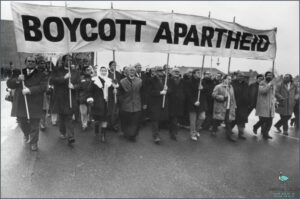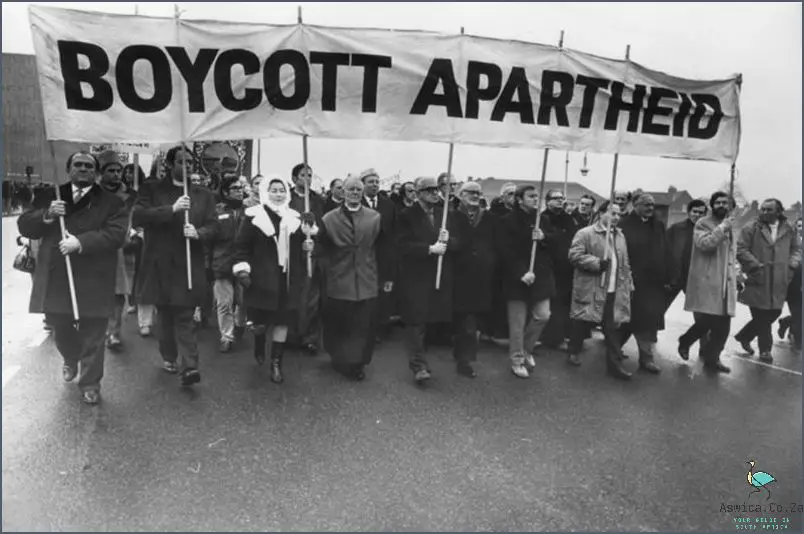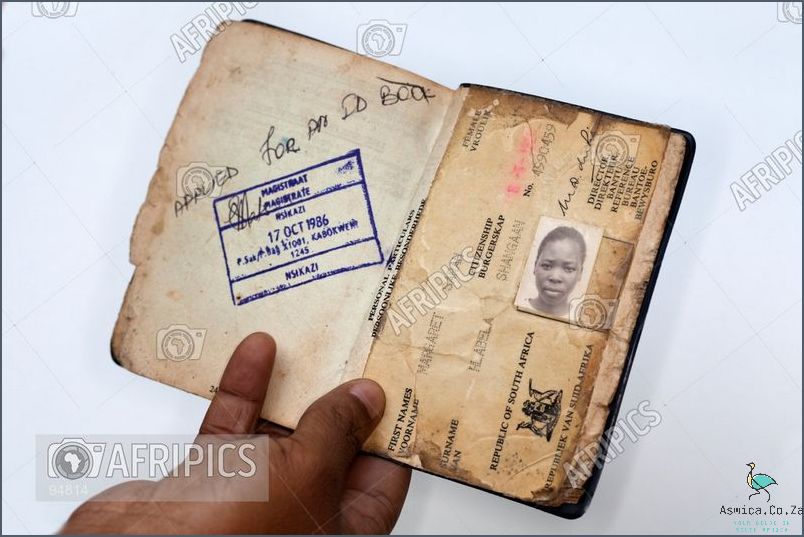
#Apartheid Laws in South Africa were a series of discriminatory laws that were enacted in the country from 1948 to 1994. These laws segregated the country’s white and non-white population, and limited the rights of the non-white population. The laws were repealed in 1994, after the end of apartheid.
Contents
Apartheid Laws In South Africa
Apartheid Laws in South Africa were a system of racial segregation enforced through legislation by the National Party government between 1948 and 1994. The laws enforced racial segregation in public places, restricted residential and educational opportunities, and prohibited interracial marriage. The laws stripped the rights and freedoms of non-white South Africans, particularly black South Africans, and this led to a long period of struggle and violence in the country. The laws were eventually abolished in 1991, and South Africa has since become an example of racial equality and reconciliation in the world.
History of Apartheid Laws in South Africa
The history of Apartheid Laws in South Africa is long and complex. It began in 1948 with the National Party’s election and the introduction of the policy of racial segregation. This policy was designed to create a separate and unequal society where non-white South Africans were subjected to a number of severe restrictions, including the denial of basic rights, such as the right to vote, own land, and even move freely within the country.
The Apartheid laws were enforced through a series of oppressive laws, including the Population Registration Act of 1950, which classified all South Africans according to their race, as well as the Group Areas Act of 1950, which segregated neighborhoods, beaches, and even parks.
The Apartheid laws also included the Bantu Education Act of 1953, which sought to provide a separate, inferior education for black South Africans, and the Pass Laws of 1952, which required all non-white South Africans to carry a “pass” in order to move around freely within the country.
The Apartheid laws were further implemented through the Separate Amenities Act of 1953, which allowed for different facilities to be created for different racial groups, such as separate beaches and public toilets.

The Apartheid laws also extended to other areas, including media, employment, and military service. All non-white South Africans were prohibited from participating in the national media, and they were also excluded from many forms of employment. Additionally, non-white South Africans were not allowed to serve in the military.
The Apartheid laws remained in effect until the early 1990s, when the country’s new president, Nelson Mandela, began to dismantle the system. In 1994, South Africa held its first democratic elections, marking the end of Apartheid.
Today, South Africa is a much more inclusive nation, and the legacy of Apartheid is still being addressed. While the country has come a long way since the end of Apartheid, there is still much work to be done in order to ensure that all South Africans can live in a society of equal rights and opportunities.
Social and Economic Impact of Apartheid
The Apartheid Laws of South Africa are some of the most controversial laws ever enacted. These laws were put in place in 1948 and remained in effect until the early 1990s, when they were eventually repealed. While many of the laws were eventually overturned, their effects still linger in the country today. The social and economic impact of Apartheid Laws in South Africa has been far-reaching and has had a lasting effect on the nation.
The primary focus of the Apartheid Laws was to create a system of segregation between blacks and whites in South Africa. These laws allowed for racial discrimination, job restrictions and denied basic rights to non-whites. This resulted in a dramatic decrease in the quality of life for many South Africans, leading to poverty and inequality. Additionally, the laws created a system of oppression and injustice that was difficult to overcome.
The economic impact of the Apartheid Laws was also significant. The laws had a direct effect on the economy by limiting the number of jobs available to non-whites and reducing wages for those who were employed. This had a direct impact on the country’s GDP, as well as the level of investment by foreign companies. As a result, South Africa’s economy suffered and foreign investors began to pull out of the country, leading to further economic decline.
The social impact of the Apartheid Laws was equally powerful. The laws caused extreme segregation and discrimination, creating an environment of hatred and intolerance. This led to a lack of trust between the races, which in turn led to violence and civil unrest. This violence was one of the primary reasons for the eventual repeal of the laws in the early 1990s.

The Apartheid Laws of South Africa had a huge impact on the country, both social and economic. While the laws have since been overturned, their effects are still felt throughout the nation. It is important to remember the impact of these laws, so that history does not repeat itself.
International Reactions to Apartheid Laws
The Apartheid Laws in South Africa sparked international outrage and condemnation throughout the world. From the 1960s onwards, several countries and international organisations opposed the policy and its implementation. The Apartheid Laws were seen as a violation of the fundamental human rights of the citizens, and their effects were felt not just in South Africa but across the African continent.
The United Nations was one of the first international organisations to respond to the Apartheid Laws, passing a series of resolutions condemning the policy and calling on South Africa to repeal the legislation. In 1966, the UN General Assembly adopted the International Convention on the Elimination of All Forms of Racial Discrimination, which declared racial segregation and discrimination to be a violation of human rights. The Convention was a major milestone in the fight against Apartheid, and was ratified by many countries.
The African Union also opposed the Apartheid Laws, calling for their repeal and for the release of all political prisoners. The Organisation of African Unity, the predecessor of the African Union, also declared its opposition to Apartheid, and in 1973, the OAU adopted the African Charter on Human and People’s Rights, which declared that all individuals should have equal rights and should not be discriminated against on the basis of race.
The Apartheid Laws also faced condemnation from individual countries, including the United States and the United Kingdom. In the US, the legislation was seen as a violation of human rights and the US government imposed a series of economic sanctions on South Africa in an effort to pressure the country to end the policy. The UK also imposed sanctions, and in 1986, Prime Minister Margaret Thatcher called for the release of Nelson Mandela and the dismantling of the Apartheid Laws.
The Apartheid Laws sparked international outrage and condemnation, and the pressure from international organisations, countries and individuals eventually led to their repeal in 1994. The Apartheid Laws were a violation of human rights, and the international community’s response was a major victory in the fight for equality.
Conclusion
The effects of Apartheid Laws in South Africa are still felt today, more than two decades after their repeal. The legacy of racialized injustice, economic inequality, and political exclusion lingers even after the end of the oppressive system. The struggle for a more equal and just society is ongoing, with many South Africans still fighting for the rights and dignity denied them by the Apartheid regime. Despite the progress made in dismantling the structures of Apartheid, South Africa still faces significant challenges in creating a more equitable society. Long-term solutions must be found to address the historical and contemporary legacies of Apartheid Laws in South Africa, and to ensure that all South Africans have equal access to opportunities and resources.




